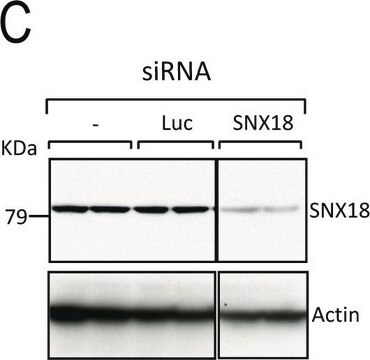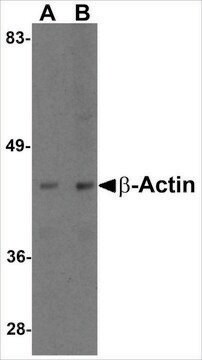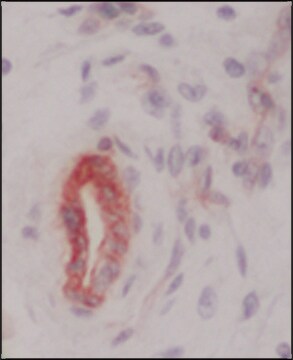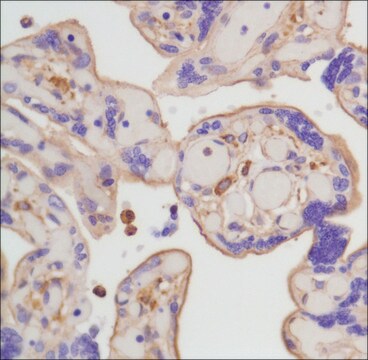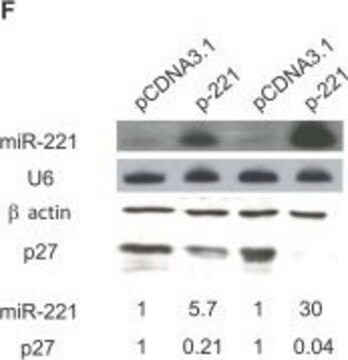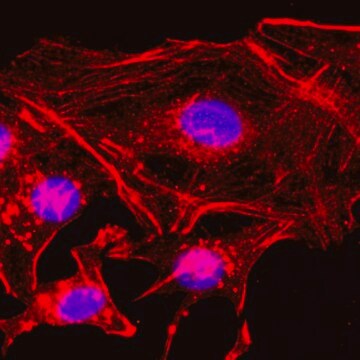F3022
Anti-β-Actin–FITC antibody, Mouse monoclonal
clone AC-15, purified from hybridoma cell culture
Synonym(s):
Monoclonal Anti-β-Actin
About This Item
biological source
mouse
conjugate
FITC conjugate
antibody form
purified immunoglobulin
antibody product type
primary antibodies
clone
AC-15, monoclonal
form
buffered aqueous solution
mol wt
antigen 42 kDa
species reactivity
sheep, carp, feline, chicken, rat, mouse, Hirudo medicinalis, rabbit, canine, pig, human, bovine, guinea pig
should not react with
Dictyostelium discoideum
technique(s)
direct immunofluorescence: 1:250 using cultured human and chicken fibroblasts
isotype
IgG1
UniProt accession no.
shipped in
dry ice
storage temp.
−20°C
target post-translational modification
unmodified
Gene Information
human ... ACTB(60)
mouse ... Actb(11461)
rat ... Actb(81822)
Looking for similar products? Visit Product Comparison Guide
General description
Immunogen
Application
- western blotting
- immunohistochemistry
- flow cytometry
- direct immunofluorescent staining
- dual immuno-fluorescent staining
Biochem/physiol Actions
Physical form
Other Notes
Disclaimer
Not finding the right product?
Try our Product Selector Tool.
Storage Class Code
10 - Combustible liquids
WGK
nwg
Flash Point(F)
Not applicable
Flash Point(C)
Not applicable
Personal Protective Equipment
Certificates of Analysis (COA)
Search for Certificates of Analysis (COA) by entering the products Lot/Batch Number. Lot and Batch Numbers can be found on a product’s label following the words ‘Lot’ or ‘Batch’.
Already Own This Product?
Find documentation for the products that you have recently purchased in the Document Library.
Customers Also Viewed
Our team of scientists has experience in all areas of research including Life Science, Material Science, Chemical Synthesis, Chromatography, Analytical and many others.
Contact Technical Service